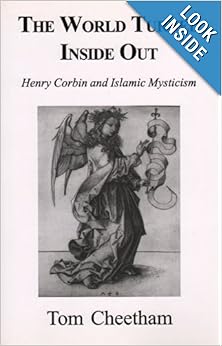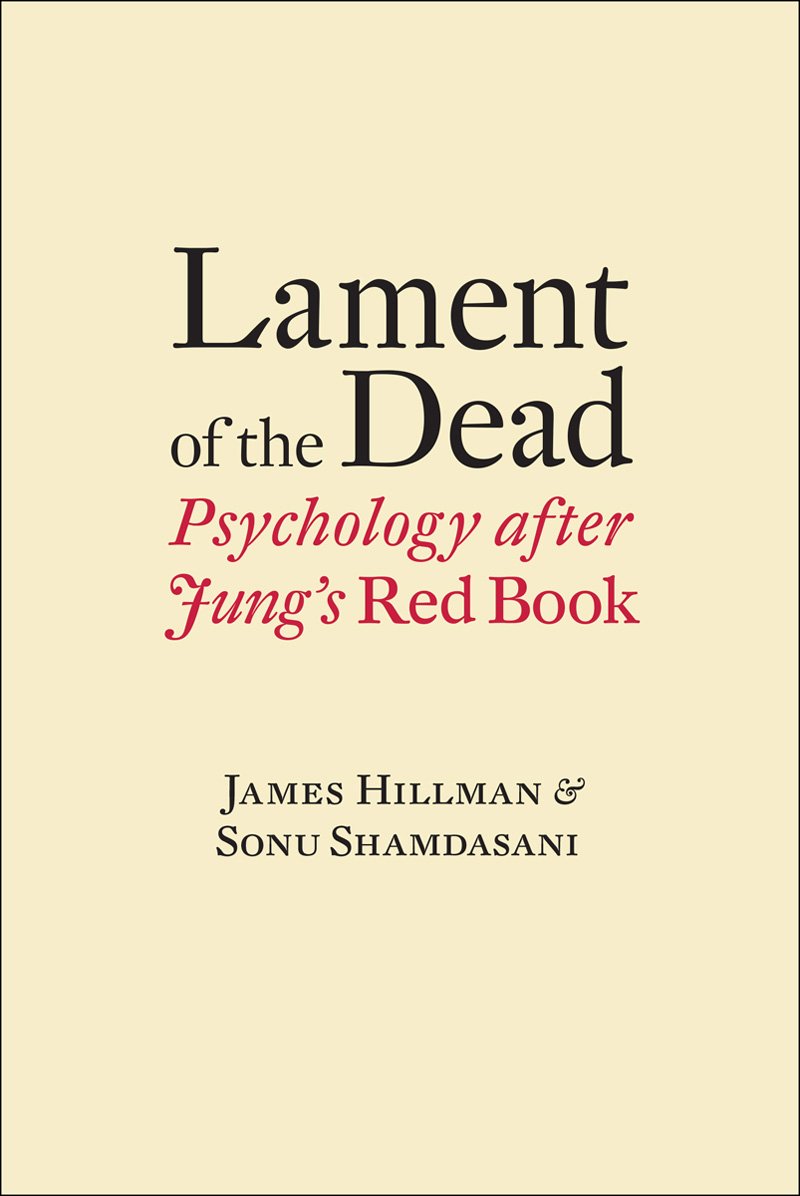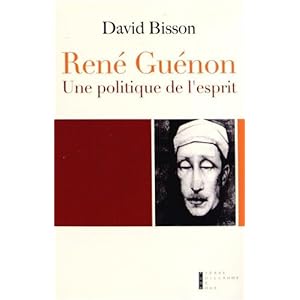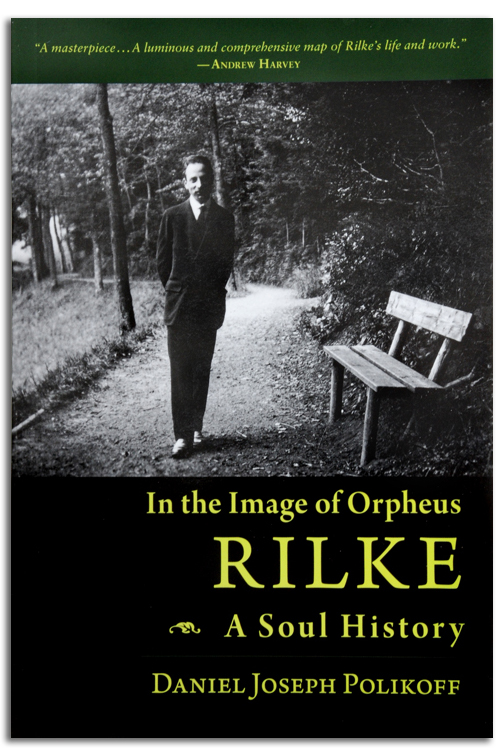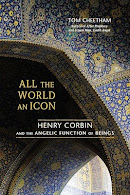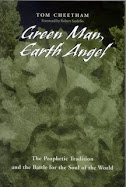"...the Imagination (or love, or sympathy, or any other sentiment) induces knowledge, and knowledge of an 'object' which is proper to it..."
Henry Corbin (1903-1978) was a scholar, philosopher and theologian. He was a champion of the transformative power of the Imagination and of the transcendent reality of the individual in a world threatened by totalitarianisms of all kinds. One of the 20th century’s most prolific scholars of Islamic mysticism, Corbin was Professor of Islam & Islamic Philosophy at the Sorbonne in Paris and at the University of Teheran. He was a major figure at the Eranos Conferences in Switzerland. He introduced the concept of the mundus imaginalis into contemporary thought. His work has provided a foundation for archetypal psychology as developed by James Hillman and influenced countless poets and artists worldwide. But Corbin’s central project was to provide a framework for understanding the unity of the religions of the Book: Judaism, Christianity and Islam. His great work Alone with the Alone: Creative Imagination in the Sufism of Ibn ‘Arabi is a classic initiatory text of visionary spirituality that transcends the tragic divisions among the three great monotheisms. Corbin’s life was devoted to the struggle to free the religious imagination from fundamentalisms of every kind. His work marks a watershed in our understanding of the religions of the West and makes a profound contribution to the study of the place of the imagination in human life.Search The Legacy of Henry Corbin: Over 800 Posts
Saturday, November 30, 2013
Tuesday, November 19, 2013
The Habit of Mysticism
Ibn Tufayl, Avicenna & Hayy Ibn Yaqzan discussed in
Getting Used to God: Augustinian and
Avicennian Approaches to the Habit of
Mysticism
Daniel J. Gillis
Monday, November 18, 2013
‘In the Karbala of his heart, it may happen that the powers of the carnal soul kill the intellect and the angelic companions who assist it, and uproot all traces of them from man’s heart. Then indeed there is accomplished in each one of us, word for word, the ta’wīl of the tragedy of Karbala.” - Henry Corbin, (Temple and Contemplation, 46) See the essay in Isma'ili Gnosis HERE.
Thursday, November 14, 2013
James Hillman Celebration in Dallas
| |||||||||||||||||
| |||||||||||||||||
Wednesday, October 30, 2013
Corbin & the Imagination in Utah - November 15 & 16
Reality at White Heat: Towards a Concrete Imagination
Friday Evening Lecture: "Your Autonomy is a Fiction: Henry Corbin On Being Human"
Saturday Lecture/Workshop: "Imaginal Love"
Friday Evening Lecture: "Your Autonomy is a Fiction: Henry Corbin On Being Human"
Saturday Lecture/Workshop: "Imaginal Love"
Friday and Saturday, November 15 & 16, 2013
with
Tom Cheetham
for
with
Tom Cheetham
for
The Friday night lecture will be available as a teleconference HERE.
Monday, October 28, 2013
Jung & Corbin in Paris
« LE LIVRE ROUGE DE JUNG, HENRY CORBIN ET
LES VISIONS DE L’ISLAM IRANIEN »
Samedi 23 novembre 2013 de 14h à 18h
Forum 104
104, rue de Vaugirard - 75006 PARIS
LES VISIONS DE L’ISLAM IRANIEN »
Samedi 23 novembre 2013 de 14h à 18h
Forum 104
104, rue de Vaugirard - 75006 PARIS
Avec le soutien de la SFPA et le partenariat des associations « Autour de Marie-Louise von Franz » et « Groupe d’Etudes C.G. Jung ».

Jean-François Alizon, théologien, pédagogue, musicien et président du Centre Européen d’Etudes Jungiennes de Strasbourg mettra en parallèle le Livre Rouge de Jung avec les visions initiatiques d’Avicenne et de Sohrawardi, telles qu’on peut les trouver dans les livres d’Henry Corbin Avicenne et le récit visionnaire et L’Archange Empourpré. JF Alizon analysera les étonnantes résonnances et similitudes des parcours intérieurs et aussi le même recours à l’imagination active au 11ème siècle comme au 20ème siècle. L’exposé sera accompagné de lectures qui feront revivre les récits iraniens et les dialogues du Livre Rouge, avec projection d’images de ce même Livre Rouge. La musique de flûtes traversières renaissance ponctuera aussi l’après midi.
Tarif adhérent proposé aux Amis de Henry et Stella Corbin : 25€
Inscription préalable nécessaire irene.ponsoye@mailoo.org ou 06 19 14 92 90
Inscription préalable nécessaire irene.ponsoye@mailoo.org ou 06 19 14 92 90
Monday, October 7, 2013
Corbin & Pir Vilayat Inayat Khan
Many thanks to Muinuddin Smith for drawing my attention to this letter of considerable interest:
A letter of March, 1962
by
HENRY CORBIN
Tuesday, October 1, 2013
On Husayn ibn Mansur al-Hallaj
Husayn ibn Mansur al-Hallaj (Persian, 10th century A.D.): from The Divan
Thursday, September 26, 2013
Volume 1 is NOT out of print...
"I use Grammarly's plagiarism checker online because it works."
amazon tells us that the volume is only available used for $900... which seems a bit excessive and is in any case not true (if anyone wants to buy my copy for $700 I'd be happy to oblige) - the publisher will be sending them more shortly. This book keeps selling, albeit slowly, and will be due for another (3rd?) print run soon.
Tuesday, September 24, 2013
Corbin in Utah - November 2013
Reality at White Heat
Towards a Concrete Imagination
with
Tom Cheetham
A Program for The Jung Society of Utah
November 15 & 16, 2013
The experience of the “saturated object” (Marion) and the need for a perpetual recovery of the full range of our experience of the world occupy a central place in the account of the imagination that we will develop in these lectures and workshops. On one reading, a saturated object has the function of an icon, and we will begin with an account of the theology of the icon provided by Henry Corbin, one of the 20th century’s great scholars and philosophers of the imagination. Corbin was a colleague of C.G. Jung and a major figure at the Eranos Conferences for nearly three decades. His works have had a broad and and continuing influence on writers and artists worldwide.
We will expand our exploration by considering and developing various understandings of creative imagination in the works of Corbin, Jung and James Hillman. Our aim will be to recapture the reality of our world through as expansive and active an exercise of the imagination as possible.
Friday Evening Lecture: “Your Autonomy is a Fiction” - Henry Corbin On Being Human
Saturday Lecture/Workshop: Imaginal Love
Tom Cheetham, All the World An Icon: Henry Corbin & the Angelic Function of Beings
Henry Corbin, Alone with the Alone: Creative Imagination in the Sufism of In ‘Arabi
James Hillman, Archetypal Psychology: A Brief Account
--------------------, Re-Visioning Psychology
Tom Cheetham, Ph.D, holds degrees in philosophy and biology. He is the author of four books on Henry Corbin and the implications of his work for our understanding of ourselves and the world; the most recent is All the World an Icon: Henry Corbin and the Angelic Function of Beings (2012, North Atlantic Books). He compiled the Bibliography of Archetypal Psychology for James Hillman’s Archetypal Psychology: A Brief Account and is editing On Melancholy, a collection of Hillman’s seminars on the meaning of depression in modern society. He lectures frequently in Europe and the US. He and his wife have two grown children and live in rural Maine.
Monday, August 5, 2013
Corbin & Duncan
Many thanks to the ever-attentive Daniel Proulx for pointing out this:
Tuesday, July 30, 2013
Monday, July 1, 2013
Tuesday, June 11, 2013
William Chittick - Major new book
The very heart of the Islamic tradition is love; no other word adequately captures the quest for transformation that lies at this tradition’s center. So argues esteemed professor of medieval Islam William C. Chittick in this survey of the extensive Arabic and Persian literature on topics ranging from the Qur’an up through the twelfth century. Bringing to light extensive foundational Persian sources never before presented, Chittick draws on more than a thousand pages of newly translated material to depict the rich prose literature at the center of Islamic thought.
William C. Chittick, professor of religious studies at Stony Brook University, is a leading translator and interpreter of classical Islamic texts. His books include The Sufi Path of Love and In Search of the Lost Heart. He lives in Mount Sinai, NY.
Monday, June 10, 2013
The Ocean of Nonexistence
I am delighted to flag a really interesting and lovely paper by Dr. Mohammed Rustom appearing in
Mawlana Rumi Review 4 (2013)
The Ocean of Nonexistence
Mohammed Rustom
In this article, I would like to offer some remarks on what Rumi has to say about love. What, in other words, is it? From his perspective, inquiring into the nature of love can only give one partial answers, since the very inquiry into what love is entails a partial question. The easiest way for Rumi to explain what love is, is by saying that we will know what it is when we get there. Consider these lines:
Someone asked, ‘What is Love?’ I said, ‘Do not ask about these meanings.
When you become like me, you will see. When you are invited by It, you will sing of It.’
Thankfully, Rumi himself left behind nearly 65,000 verses of poetry, most of which sing of the nature and reality of love. Yet, even after having attained to love, he acknowledges that some things are better left unsaid, precisely because love is too vast to be encompassed by human thought and language:
Whatever I say about Love by way of commentary and exposition,
Someone asked, ‘What is Love?’ I said, ‘Do not ask about these meanings.
When you become like me, you will see. When you are invited by It, you will sing of It.’
Thankfully, Rumi himself left behind nearly 65,000 verses of poetry, most of which sing of the nature and reality of love. Yet, even after having attained to love, he acknowledges that some things are better left unsaid, precisely because love is too vast to be encompassed by human thought and language:
Whatever I say about Love by way of commentary and exposition,
when I get to Love, I am ashamed at that
Although explanation with the tongue is clear,
that Love which is tongue-less is even clearer.
Since love is so difficult to pin down, Rumi finds an apt metaphor for what it is by referring to it as an ‘ocean’, which, incidentally, he does more so than any other poet in the Persian or Arabic language...
that Love which is tongue-less is even clearer.
Since love is so difficult to pin down, Rumi finds an apt metaphor for what it is by referring to it as an ‘ocean’, which, incidentally, he does more so than any other poet in the Persian or Arabic language...
Friday, May 31, 2013
Thursday, May 30, 2013
Mohammed Rustom
Professor Rustom is, among many other things, an authority on Henry Corbin and Mulla Sadr and an editor of a recent anthology of the writings of Wiliam Chittick. His webpage is well worth your attention:


Wednesday, May 29, 2013
Monday, May 20, 2013
Thomas Arzt Website
Fine new website of my friend and colleague
Thomas Arzt
Princeton-educated Physicist and Jungian Therapist
in the Meditation Center of Karlfried Graf Dürckheim
in Todtmoos-Rütte, Germany
:
Thomas Arzt
Princeton-educated Physicist and Jungian Therapist
in the Meditation Center of Karlfried Graf Dürckheim
in Todtmoos-Rütte, Germany
:
Tuesday, May 14, 2013
A Discussion of the Corbin Quartet
As part of my presentation at Sonoma State University in April
I was interviewed by Michael Lerner of Commonweal.
We talked about Henry Corbin and the books in the quartet.
Tuesday, April 30, 2013
Monday, April 22, 2013
Coffee and qahwa: How a drink for Arab mystics went global
"Qahwa originally meant wine, and Sufi mystics in Yemen used coffee as an aid to concentration and even spiritual intoxication when they chanted the name of God."
Sunday, April 21, 2013
René Guénon, Une politique de l'esprit
David Bisson, René Guénon, Une politique de l'esprit, PGDR, 526 p.
Abstract :
« ... l'Angleterre avait Shakespeare, l'Italie Dante, /'Allemagne Goethe, la France avait Guénon.» Jean Borella
Né à Blois en 1886 et enterré au Caire sous le nom d'Abd el-Wâhed Yahiâ en 1951, René Guénon est l'homme par qui le scandale arrive. Il dénonce la décadence de l'Occident moderne, fruit d'une lente dégénérescence de son héritage métaphysique et se tourne, au grand dam des catholiques, vers l'Orient devenu, selon lui, le refuge ultime de la« Tradition». Cette dernière notion, centrale chez Guénon, élève toutes les traditions religieuses de l'humanité au même niveau de transcendance tout en reconnaissant à chacune d'entre elles sa dimension spirituelle spécifique. Un point de vue tout simplement révolutionnaire dans les années 30. Dès lors, il appartient à l'individu de se déterminer spirituellement par un processus de connaissance graduée qui dépasse largement le seul exercice d'un rite religieux. C'est la voie ésotérique par essence, qui suscitera l'émergence à travers le monde (Europe, États-Unis, Russie, etc.) d'innombrables« chapelles» initiatiques se réclamant de Guénon, avec notamment les groupes soufis dirigés par Schuon, Vâlsan ou Pallavicini. Chose frappante, un lien inextricable s'est peu à peu tissé entre cette perspective ésotérique et l'horizon politique. En témoignent la« spiritualité héroïque» de Julius Evola dans l'Italie des années trente mais aussi les résonances guénoniennes qu'on découvre dans l'engagement politique de Simone Weil ou de Carl Schmitt. Parallèlement à l'activité des revues Le Voile d'lsis / Études Traditionnelles, les apports de Mircea Eliade, d'Henry Corbin ou de Raymond Abellio achèvent de perpétuer le rayonnement guénonien, si controversé soit-il. Cette mise en perspective monumentale de l'œuvre de René Guénon révèle, de manière décisive, une figure cardinale du XXe siècle et dévoile l'étendue de son rôle dans la construction de la pensée occidentale moderne.
L'auteur
Docteur en sciences politiques et historien des idées, David Bisson, né en 7 97 3, est spécialiste de /'histoire des courants ésotériques contemporains. Ses recherches portent sur les relations qui se nouent entre le politique et le religieux à travers, notamment, la notion de « métapolitique ».
Saturday, April 20, 2013
Thursday, April 18, 2013
Wednesday, April 10, 2013
Major Gnosis Conference - Moscow
Esotericism in Russia: “Ways of Gnosis” conference, April 10-13, 2013
Abstracts include this:
Арапов Александр Владиленович, доктор философских наук, доцент,
профессор кафедры философии, истории и права Финансового университета при
Правительстве РФ, Воронежский филиал (Воронеж).
Email: arpv@mail.ru
Анри Корбен: гностик и востоковед
Тексты Корбена всегда глубинным образом связаны с его личным
духовным опытом, который он хочет донести до родственных душ, до тех,
кто, как и он сам, принадлежит к мировой религии Гнозиса. Для Анри
Корбена Христос – Ангел, небесный полюс, небесная самость человека.
Человеческая сущность двухполюсная и образует двуединство земной и
небесной формы. Ангел Христос – его высшая вторая половина. Ангельский
статус человека не дан ему от рождения – он является целью, которую
необходимо достичь. Истинное жизненное путешествие человека – это
восхождение по духовной лестнице, Успех на данном пути зависит от способности любить и от неразрывно связанной с ней способности
воспринимать красоту. Таким образом, гностическая сотериология, учение о
спасении, говорит не о воплощении Христа, который становится человеком,
а о восхождении человека, который становится ангелом.
Henry Corbin: Gnostic and Orientalist
Corbin’s texts are always deeply connected to his personal spiritual
experiences, which he wants to share with all kindred souls, with all who, like
himself, are adherents of the world religion of Gnosis. In Corbin’s
weltanschauung, Christ is the Angel, the celestial pole, the heavenly self of a
human being. The human essence is bipolar, a unity of the celestial and the
terrestrial forms. The Angel Christ is the supreme celestial half of a human being.
The status of an Angel is the goal of a human life, something to strive for rather
than inherent by birth. The true human life journey is an ascension on the spiritual
ladder. The ability to love and the ability to see beauty are necessary requirements
for this ascension. Therefore, the Gnostic soteriology – salvation doctrine – is not
about the incarnation of Christ, not about the God who became a man. It is about
the ascension of a human being, about a man who will become an Angel.
Tuesday, April 9, 2013
Bunting's Persia
Edited by Don Share, this slim anthology collects Basil Bunting’s translations from Persian poetry by Rudaki, Ferdowsi, Manuchehri, Sa‘di, Hafiz, and Obaid-e Zakani, including some that are previously unpublished. Bunting, who is widely regarded as one of the most important British poets of the twentieth century, proved unusual in his deep and abiding interest in Middle Eastern culture. Here, he renders poetry of remarkable tonal and emotional range in characteristically clear and resolute language.
“Reading Bunting’s translations, I am struck again by how fresh and strong they are, how vivid in their feeling, and how he digs into the spirit of the originals—a kind of passionate excavation work.”—Dick Davis, translator of The Shahnameh: The Persian Book of Kings
Sunday, April 7, 2013
On John Clarke (in the series on Corbin & Poetry)
I have this note from Duncan McNaughton dating back a couple years in response to a question about Corbin's influence:
As far as I know - not far - Jack Clarke's book From Feathers to Iron and subsequent poetry is the most evident use of Corbin after Olson's. In a primary determination involving, obviously, several other primaries - Blake, the Dogon stuff, Novalis, di Santillana etc. All aimed at what is actually meant by what is called "interpretation."
From the back cover we have this from James Hillman:
"How rarely I come upon a truly useful book. Clarke has packed it all in here and wherever you open the pages, jewels, pearls, crowns tumble out. I see illustrations to the Arabian Nights. I have already picked up and walked off with treasures."
Also, in the current issue of Ken Warren's HOUSE ORGAN there is a very nice piece by Bruce Holsapple on Clarke's In the Analogy.
Friday, April 5, 2013
Thursday, April 4, 2013
"The Réalité-humaine of Henry Corbin" - Doctoral Thesis
Bligh, Rebecca. 2012. The Réalité-humaine of Henry Corbin. (full text available). Doctoral thesis, Goldsmiths, University of London.
This thesis sets out to correlate—to hyphenate, even—the dual and historically disparate personae of Henry Corbin the first French translator of Heidegger, and Henry Corbin, Iranian Islamist and pioneering comparative philosopher. The thesis’ cynosure is a case for the philosophicohistorically contextual reconsideration of Corbin’s infamous translation of Heidegger’s term Dasein as “réalité-humaine”, as the result of the young Corbin’s own profound engagement with Heidegger as informed by the then philosophically avant-garde.
A contextual reading of Corbin’s late “Biographical Post-Scriptum” is enriched by the introduction of a correspondence between Corbin and the Warburg Library (chiefly Gertrud Bing), discovered to lie in the Warburg Library Archive in London, but which to date does not appear in Corbinian literature.
The self-proclaimed point, and cause of Corbin’s divergence from Heidegger is examined further. Traces of Corbin’s own professed “debt” to Heidegger will be shown to have indeed persisted throughout Corbin’s oeuvre. Close readings of the ontological role accorded to the transcendental imagination by Heidegger (after Kant) in the Kant book, and Heidegger’s proofs of the finitude of both Being and Dasein, as set forth in (the majority of) those texts included in Corbin’s 1938 Gallimard translation of Heidegger, Qu’est-ce que la métaphysique? (including Part 4 of the Kant book) and Parts 1-3 of the Kant book are read against Corbin’s own philosophy of the imaginal.
Tuesday, April 2, 2013
New Book with Essay on Corbin
Chapter 22:
Henry Corbin's Hermeneutics of Scripture
by Hadi Fahkhoury
in
Philosophy and the Abrahamic Religions: Scriptural Hermeneutics and Epistemology
Editor: Torrance Kirby, Rahim Acar and Bilal Baş
Date Of Publication: Jan 2013
Cambridge Scholars Publishing
Editor: Torrance Kirby, Rahim Acar and Bilal Baş
Date Of Publication: Jan 2013
Cambridge Scholars Publishing
From Greco-Roman Antiquity through to the European Enlightenment, philosophy and religious thought were inseparably interwoven. This was equally the case for the popular natural or ‘pagan’ religions of the ancient world as it was for the three pre-eminent ‘religions of the book’, namely Judaism, Christianity, and Islam. The lengthy and involved encounter of the Greek philosophical tradition – and especially of the Platonic, Aristotelian, and Neoplatonic strands of that tradition – initially with the Hellenistic cults and subsequently with the three Abrahamic religions, played a critical role in shaping the basic contours of Western intellectual history from Plato to Philo of Alexandria, Plotinus, Porphyry, Augustine, and Proclus; from Aristotle to al-Fārābī, Avicenna, al-Ġazālī, Aquinas and the medieval scholastics, and eventually to Meister Eckhart and Nicholas Cusanus and such modern philosophers and theologians as Richard Hooker, the Cambridge Platonists, Jacob Boehme, and G. W. F. Hegel to name but a few. The aim of the twenty-four essays comprising this volume is to explore the intellectual worlds of the three Abrahamic religious traditions, their respective approaches to scriptural hermeneutics, and their interaction over many centuries on the common ground of the inheritance of classical Greek philosophy. The shared goal of the contributors is to demonstrate the extent to which the three Abrahamic religions have created similar shared patterns of thought in dealing with crucial religious concepts such as the divine, creation, providence, laws both natural and revealed, such problems as the origin of evil and the possibility of salvation, as well as defining hermeneutics, that is to say the manner of interpreting their sacred writings.
Torrance Kirby is Professor of Ecclesiastical History and Director of the Centre for Research on Religion at McGill University, Montreal. His recent books include Richard Hooker, Reformer and Platonist (2005) and A Companion to Richard Hooker (2008).
Rahim Acar is Associate Professor of Philosophy of Religion at Marmara University, Istanbul. He is the author of Talking about God and Talking about Creation: Avicenna’s and Thomas Aquinas’ Positions (2005).
Bilal Baş is Assistant Professor of the History of Religions at Marmara University, Istanbul. His monograph, Ecclesiastical Politics during the Iconoclastic Controversy: The Impact of Eusebian Political Theology on Imperial Policy, will be published soon.
Monday, April 1, 2013
News from Les Amis...
| ||||||||||||||||||||||||||||||||||||||||
| ||||||||||||||||||||||||||||||||||||||||
| ||||||||||||||||||||||||||||||||||||||||
| ||||||||||||||||||||||||||||||||||||||||
|
Subscribe to:
Posts (Atom)






